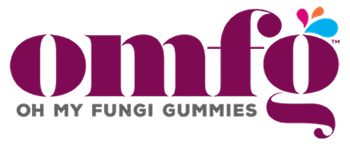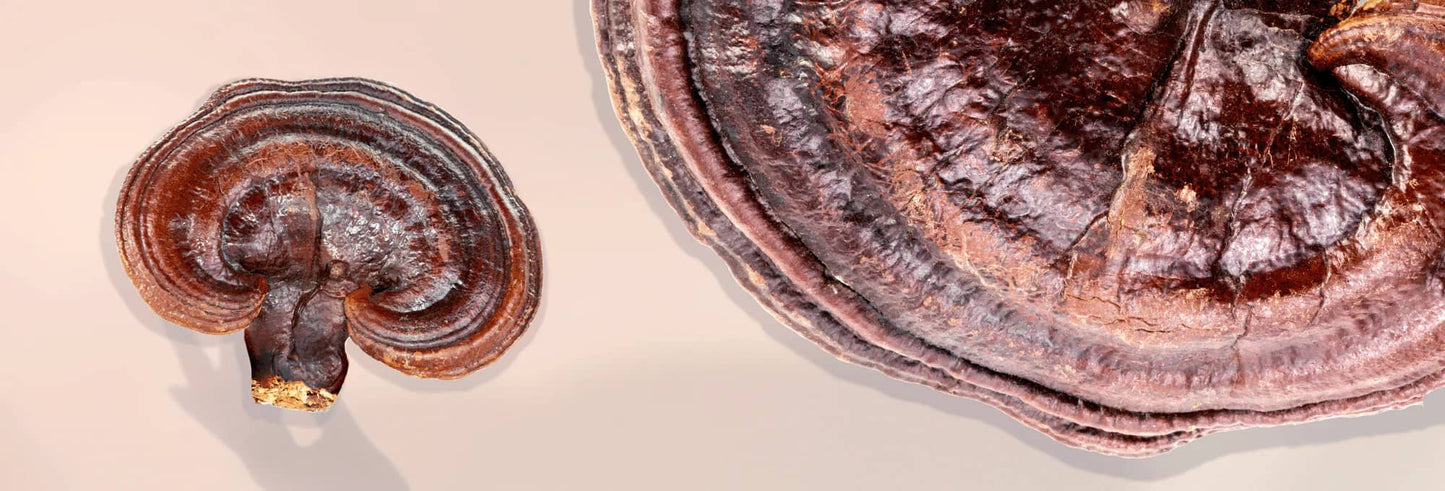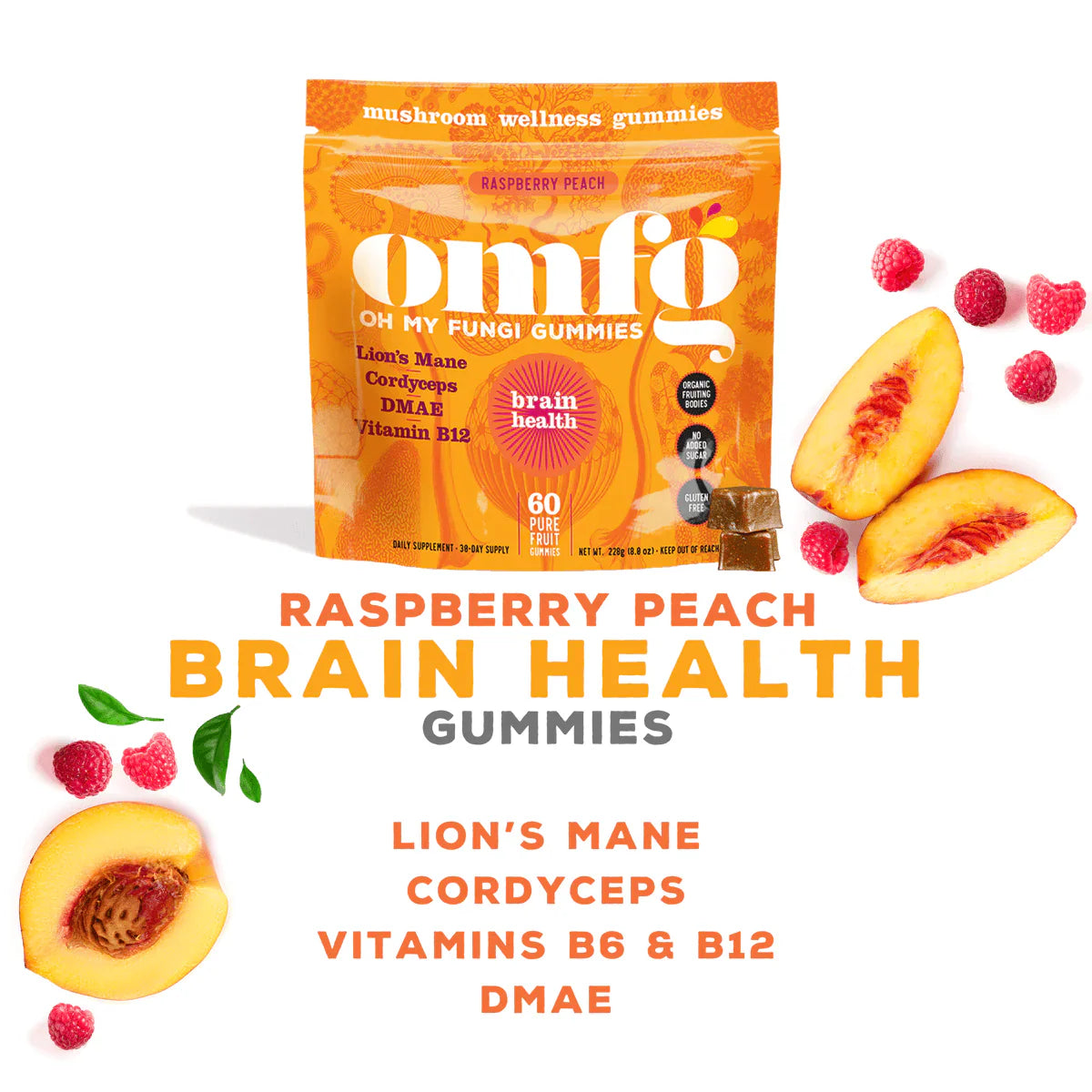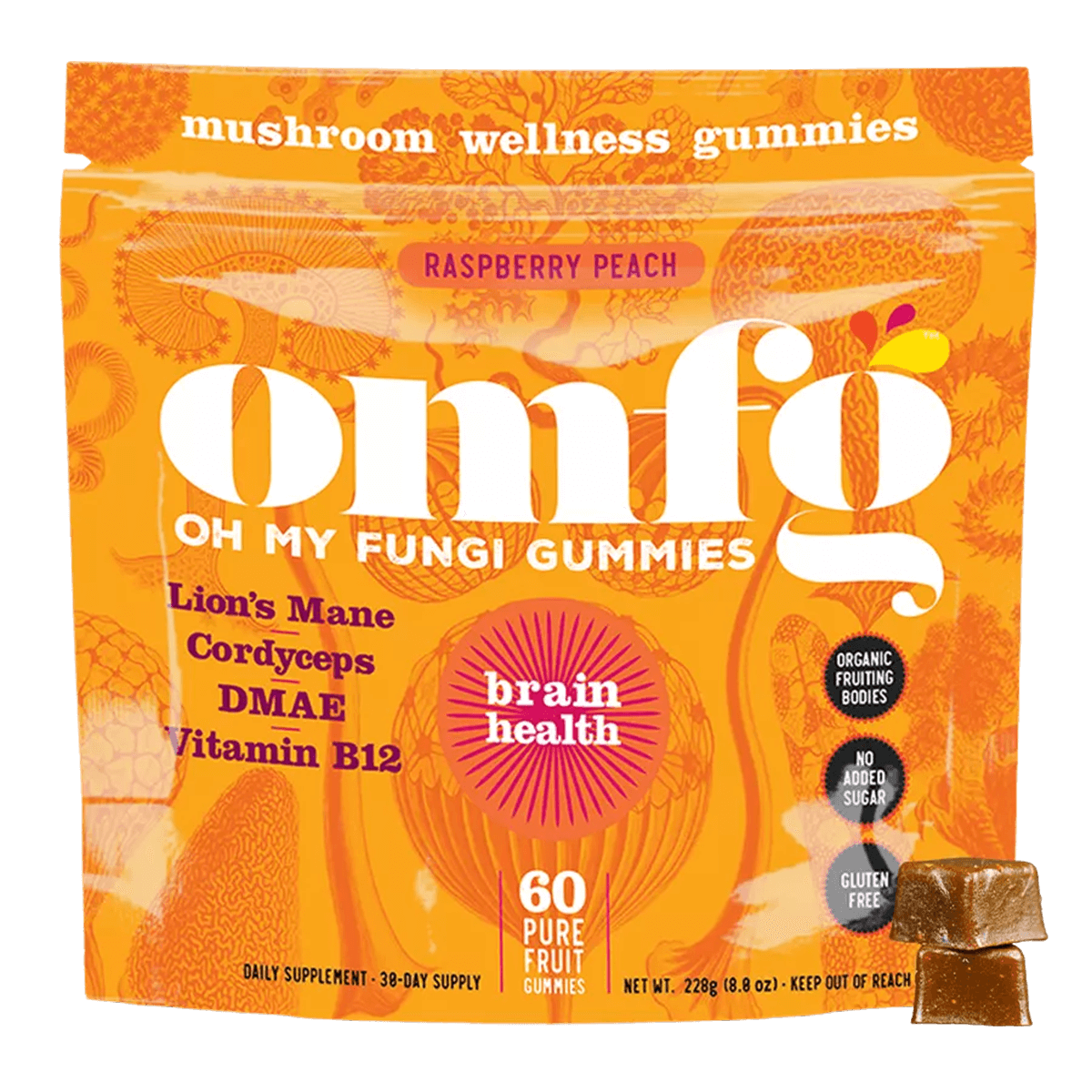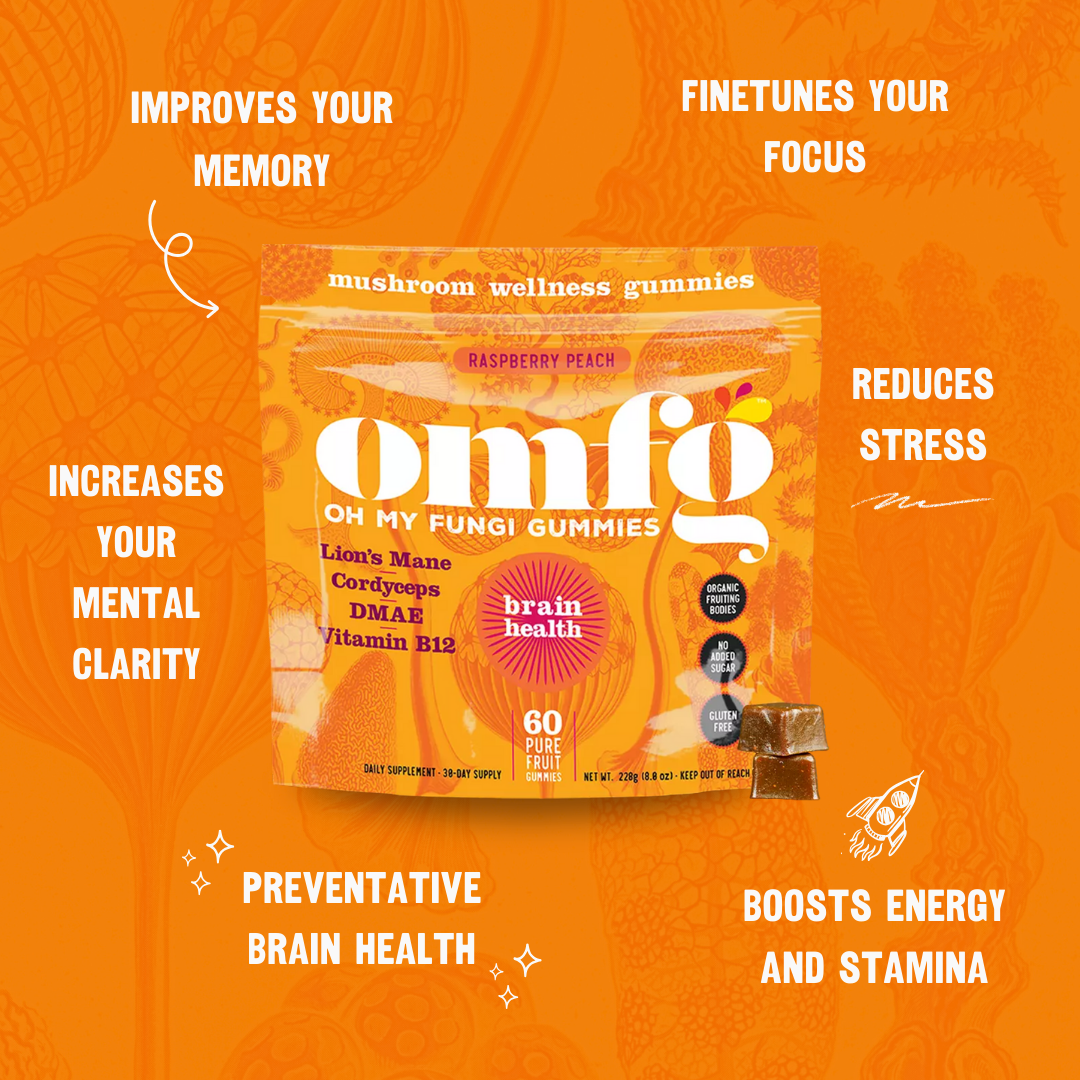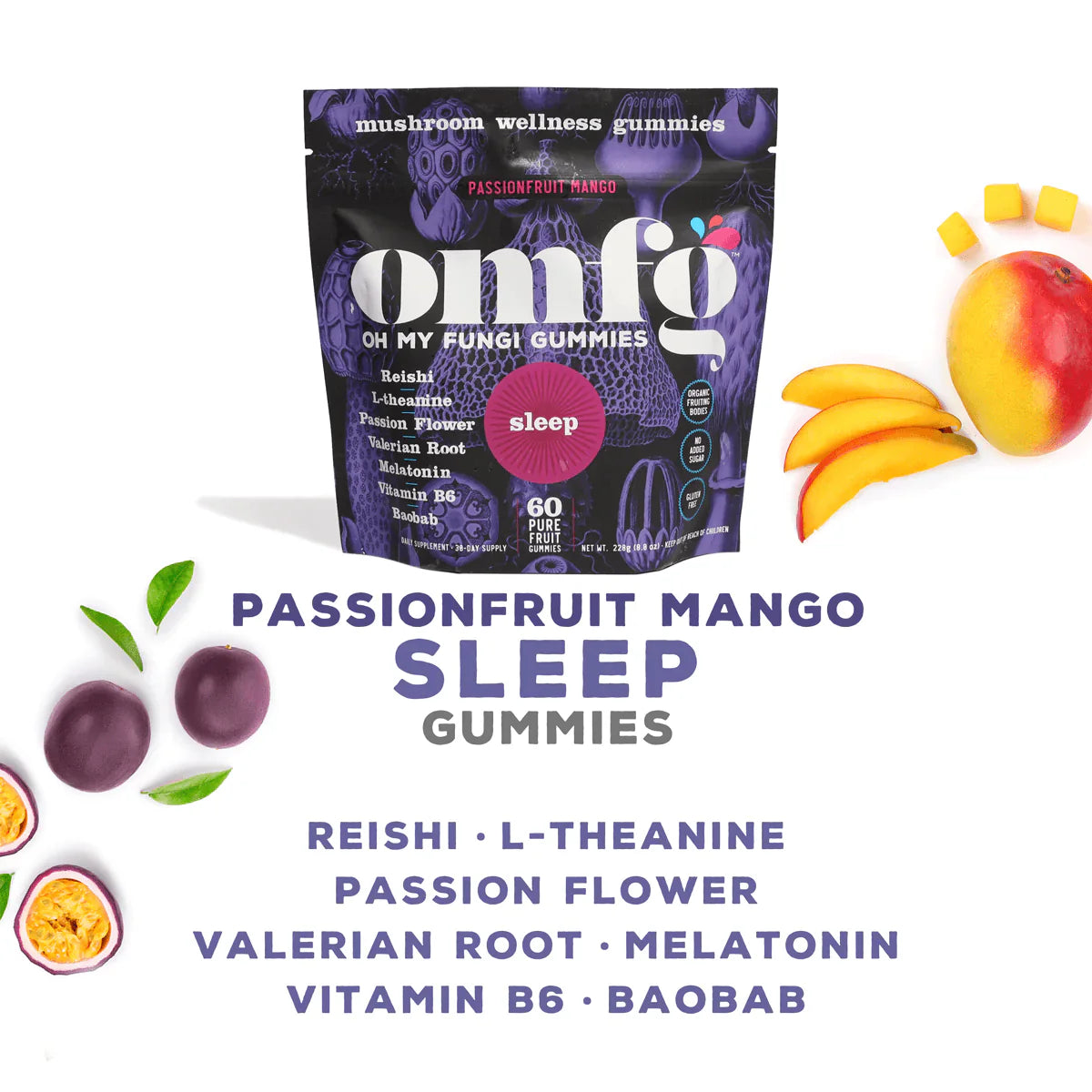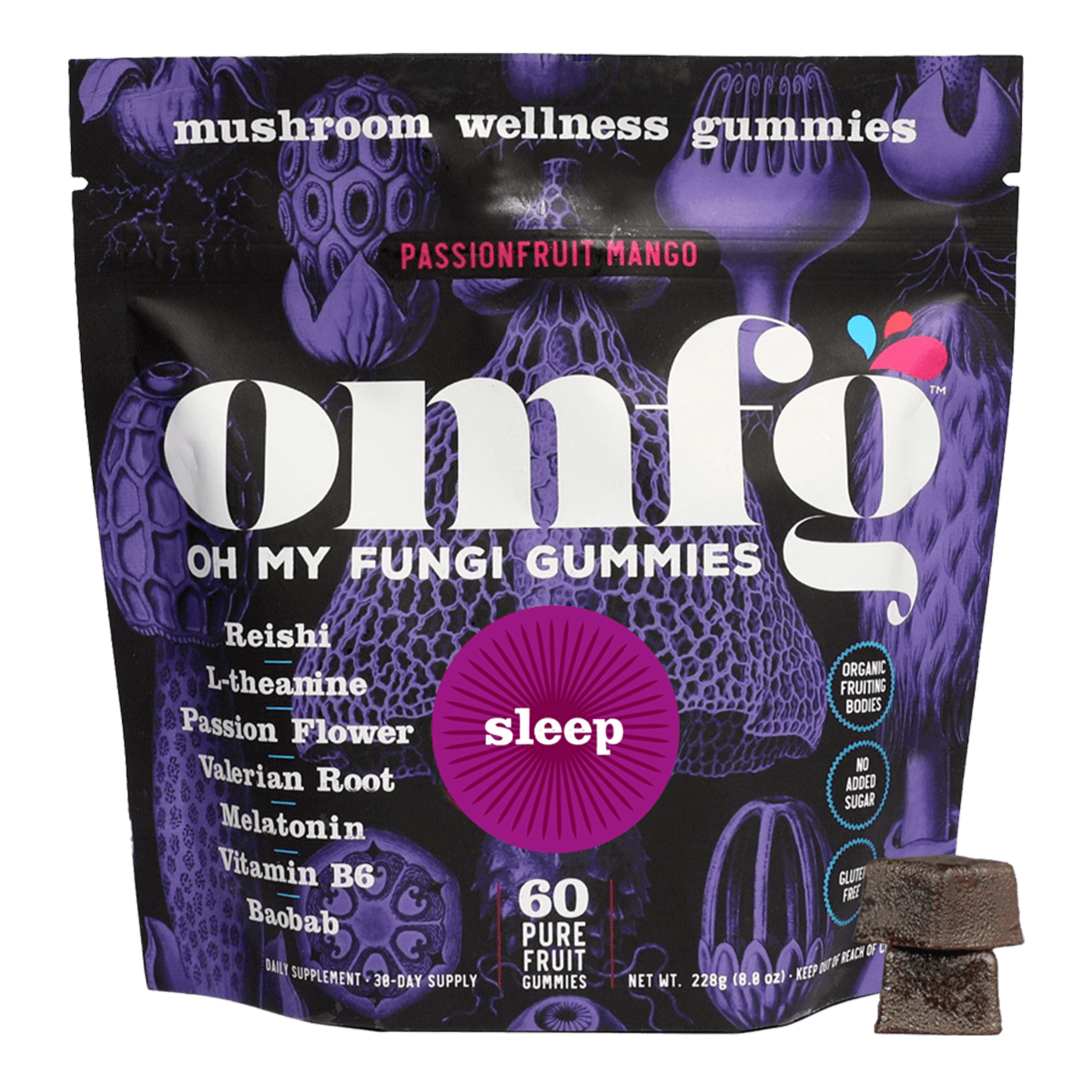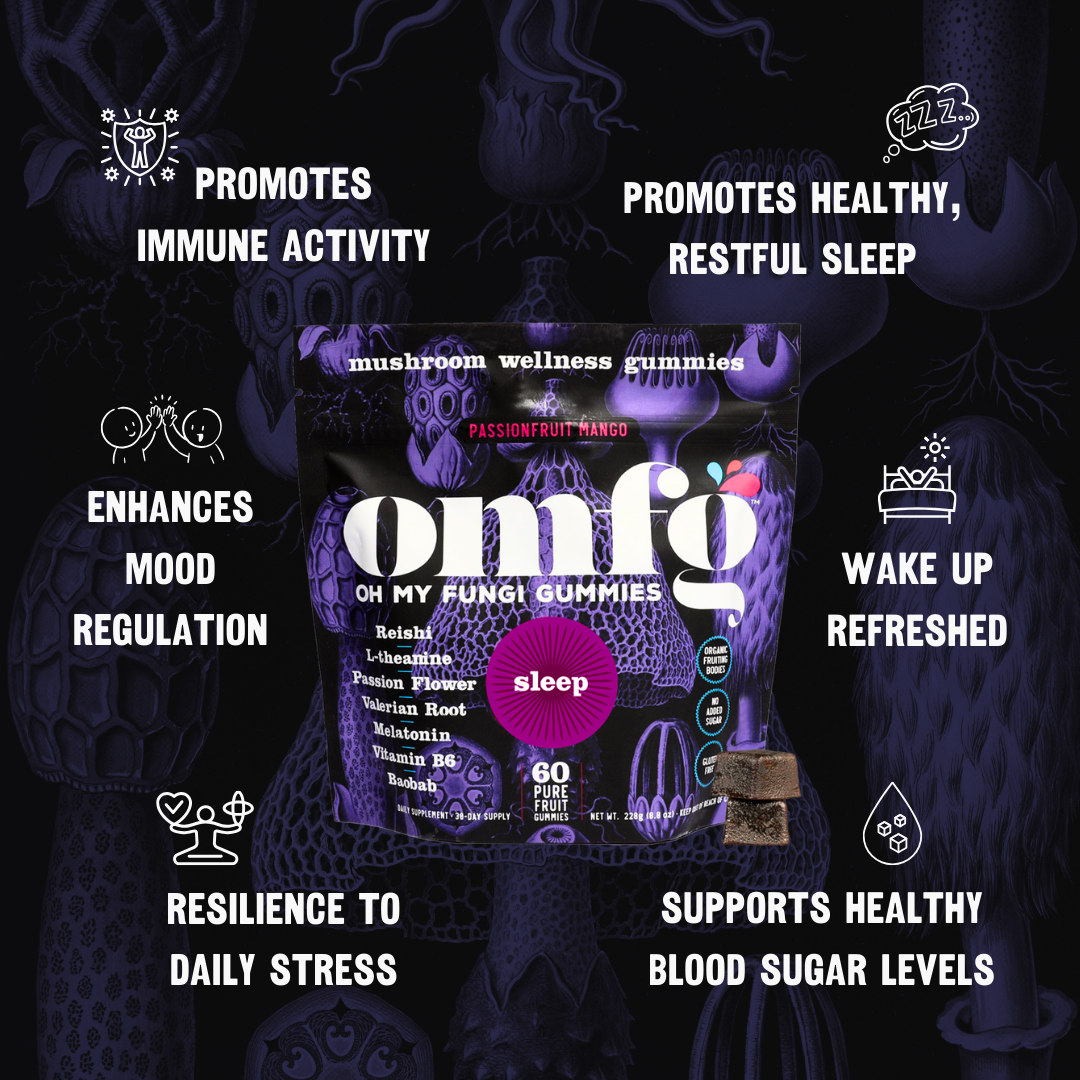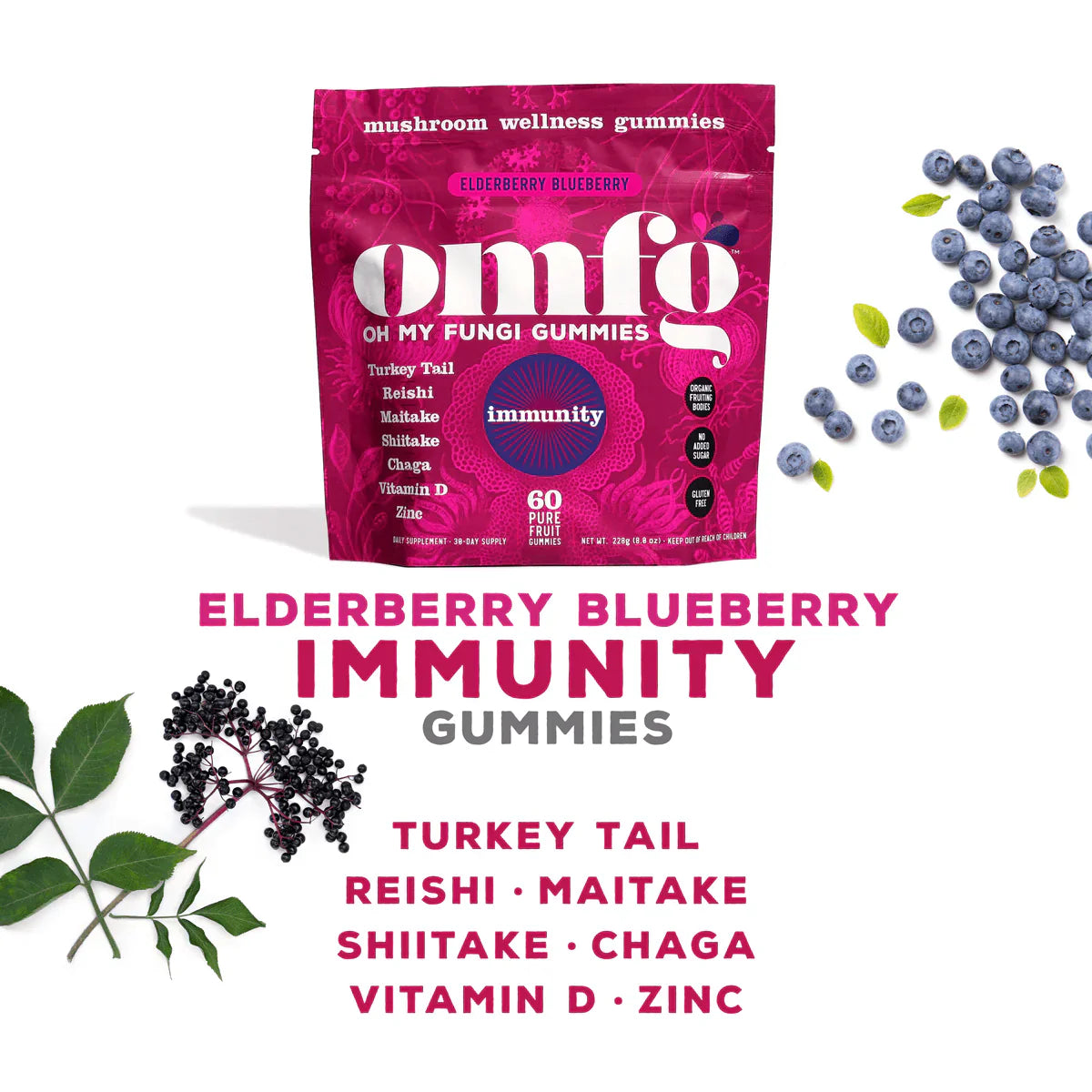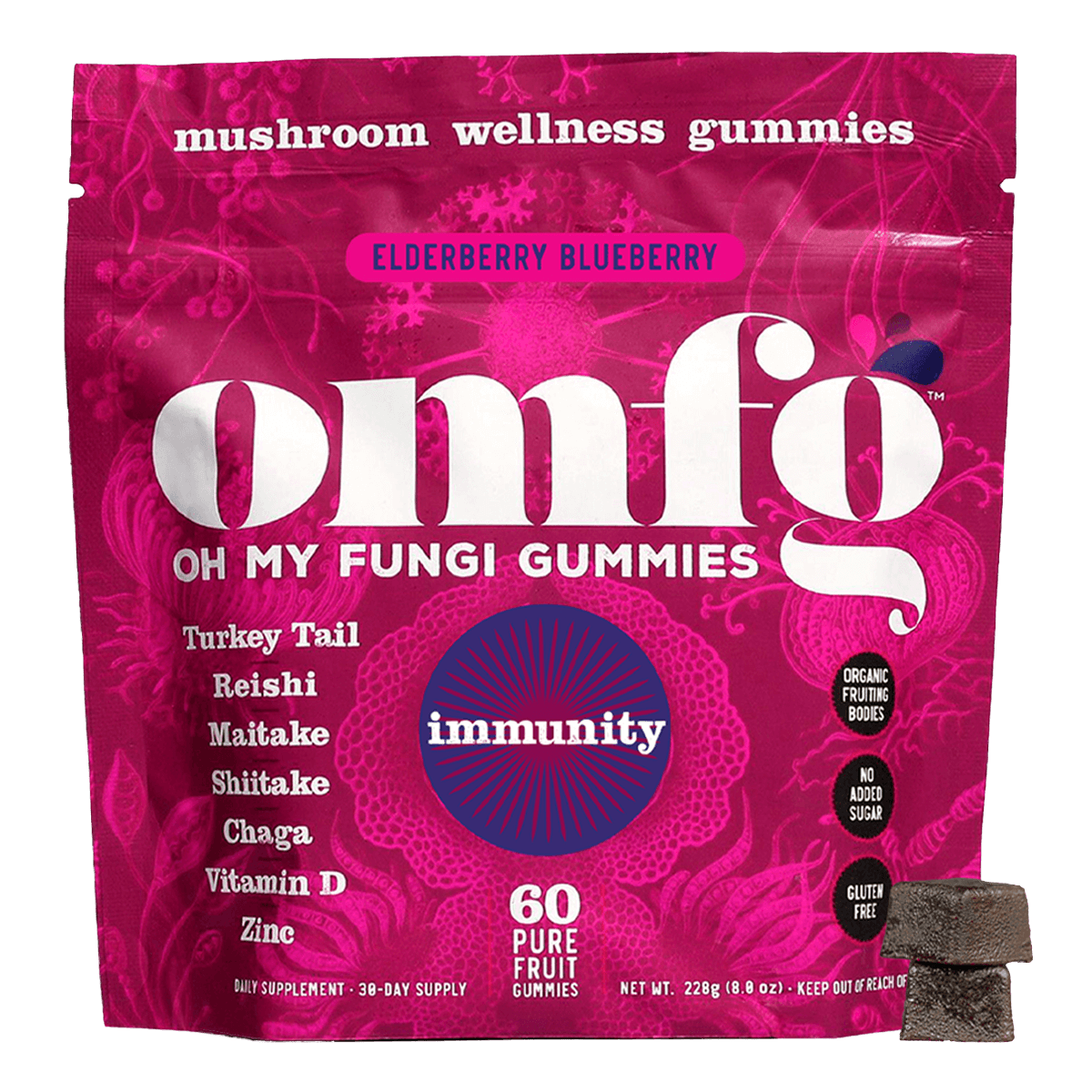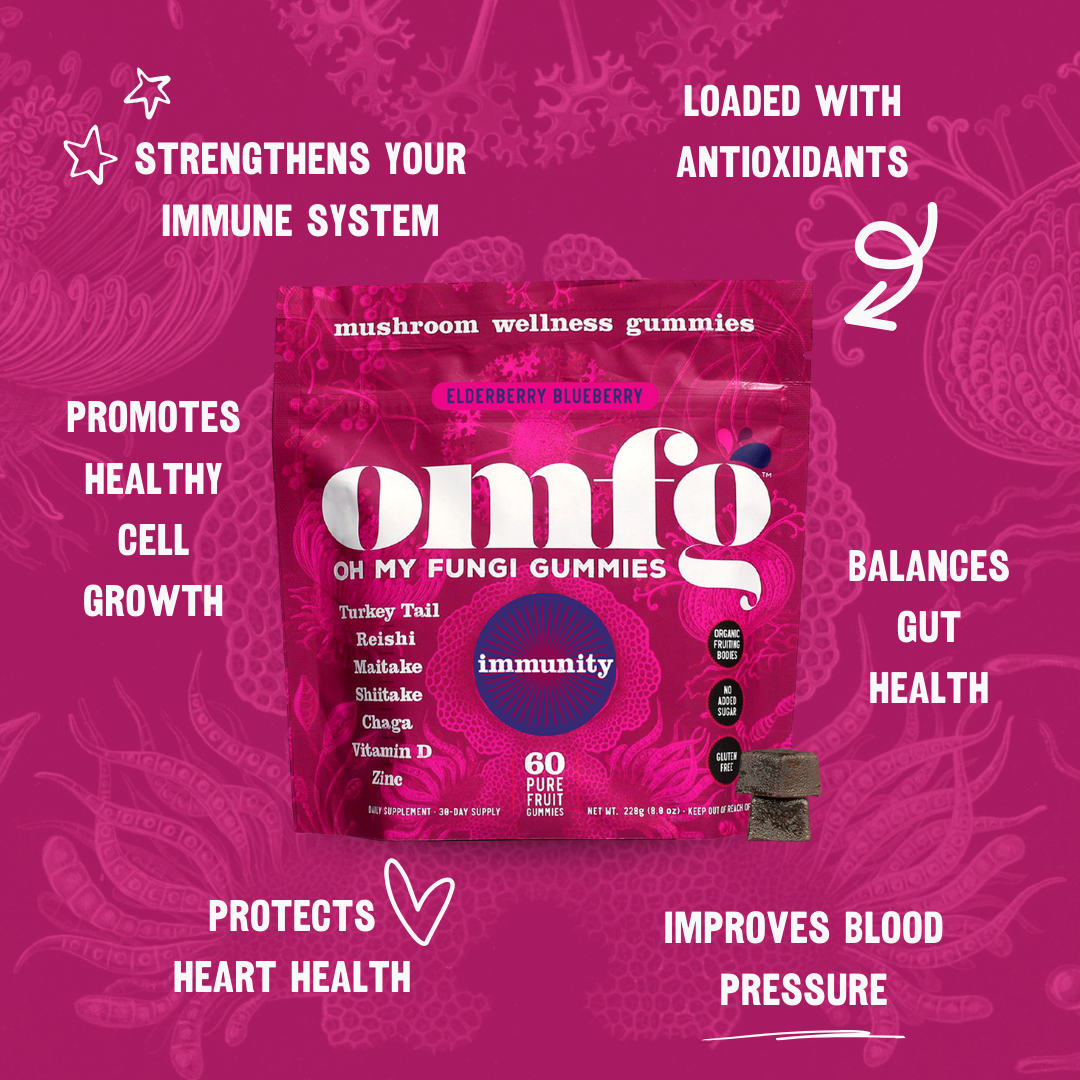Known as the ‘queen of mushrooms,’ reishi mushroom has been used in traditional Chinese medicine for 5,000 years.1,12 It was so revered in ancient China that only royalty was allowed to use it, hence the nickname.
We use this mushroom in both our sleep and immunity gummies because it’s such a powerful adaptogen. An ‘adaptogen’ is any natural substance that helps your body adjust to physical, chemical, or biological stress and return it to the desired state of balance, or "homeostasis." Taking reishi mushrooms on a daily basis, however, is essential to reaping its benefits. They don’t work as a “spot” remedy.
“Known as the ‘queen of mushrooms,’ reishi has been used in traditional Chinese medicine for 5,000 years.”
Reishi Mushroom Benefits
In modern society, stress takes many forms, (work, kids, money, just general pace of life), and so adaptogens are more crucial than ever. Reishi mushrooms benefit your whole system and might help improve quality of sleep, strengthen immunity, enable the body to absorb more nutrients from the food we eat, and support the body to better handle stress on every level.
It’s purported that reishi’s terpenes help soothe the nerves and promote a sedative effect that helps with relaxation. (Terpenes are naturally occurring chemical compounds found in plants and even some animals). Of all the medicinal and functional mushrooms, reishi mushroom is considered to be the best for anxiety and calming.
“Of all the medicinal and functional mushrooms, reishi is considered to be the best for anxiety and calming”
Here’s some other nerdy science for you: as an adaptogenic mushroom, reishi contains over 200 polysaccharide compounds that stimulate immune cell activity.12 These compounds, which include the immunity rock-stars beta-1, 3 D-glucans, help boost the production of T-helper cells, T-killer cells, macrophages (little pac-mans that eat free-radicals), and NK Cells (natural killer cells have the power to destroy tumor cells and cells infected with a virus). In laboratory studies, these Beta-glucans present in functional mushrooms have demonstrated that they can suppress tumor necrosis factor (TNF), a little cytokine that is produced by inflammatory cells and can impede the state of a healthy body. 2,3
If the possibility of fighting inflammatory conditions wasn’t badass enough4,5, there are studies indicating that reishi mushrooms may be good for heart health by way of compounds that lower ‘bad’ cholesterol. These compounds might help to normalize blood pressure and increase the flexibility of blood vessels, which keeps plaque from building up, lowering risk of stroke and heart attack.
Research suggests Reishi may:

- Promote healthy cell growth and turnover*
- Support healthy sleep*
- Help maintain balance in the endocrine system*
- Support DNA and healthy cell growth*
- Support healthy liver function*
- Promote heart health*
- Support healthy digestive function*
- Promote a healthy, balanced mood*
Reishi can be found in OMFG Immunity and Sleep mushroom gummies.
And, nope, that’s not it, my friend! Research also indicates that the mighty reishi mushroom may help regulate blood sugar, maintaining it in normal ranges. 7 It’s also rich in triterpenoids which may help protect the liver from damage, hence it has been used in Chinese medicine throughout the ages as a remedy for hepatitis.9
These same triterpenoids may help reduce allergies and histamine reactions associated with asthma, so we can add lungs to the list of organs that reishi may help to nourish. 10
And those good old polysaccharides promote neurogenesis and may improve cognitive function too. The triterpenes in reishi mushroom were found to stimulate the production of Nerve Growth Factor (NGF), which shows promising potential treatments for cognitive decline.11

This magnificent functional mushroom also supports gut health by acting as a prebiotic to establish good flora in the intestines.8 And despite the fact that it’s a fungus, it has been shown to have antifungal and antimicrobial properties, thus may help curb candida overgrowth. 13, 14
Reishi is one of the more bitter mushrooms in the fungus family so you might detect a small note of bitterness, but we think we did a pretty good job of masking it with our fruit-forward mushroom gummy formulation.
All hail the Queen!
SOURCES
1. https://pubmed.ncbi.nlm.nih.gov/29141563/
2. https://www.ncbi.nlm.nih.gov/pmc/articles/PMC6017764/
3. https://pubmed.ncbi.nlm.nih.gov/22582152/
4. https://academic.oup.com/advances/advance-article-abstract/doi/10.1093/advances/nmab015/6174025?redirectedFrom=fulltext&login=false
5. https://pubmed.ncbi.nlm.nih.gov/23468988/
6. https://www.mskcc.org/cancer-care/integrative-medicine/herbs/reishi-mushroom
7. https://pubmed.ncbi.nlm.nih.gov/25790910/
8. https://www.nature.com/articles/s41598-018-22885-7
9. https://pubmed.ncbi.nlm.nih.gov/23796220/
10. https://pubmed.ncbi.nlm.nih.gov/2455976/
11. https://pubmed.ncbi.nlm.nih.gov/28761429/
12. https://www.ncbi.nlm.nih.gov/books/NBK92757/
13. https://pubmed.ncbi.nlm.nih.gov/24940906/
14. https://pubmed.ncbi.nlm.nih.gov/23510217/
